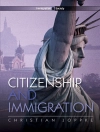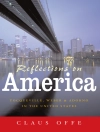This book offers a novel, grounded-theory approach to the study of online comments about Donald Trump and the USA in countries with a turbulent relation with America: China, Mexico and Russia.
Slavtcheva-Petkova advocates for a departure from Jürgen Habermas’s public sphere and democratic deliberative framework, introducing instead the concept of post-deliberative public spheres. The book provides a qualitative thematic analysis via the constant comparison method, coupled with quantitate content analysis of more than 2200 social media comments posted from Trump’s election in 2016 until July 2020. Three empirical chapters are devoted to the countries under study, showing how it is possible to map the comments onto a spectrum of authoritarianism/censored media to democracy/free media. Slavtcheva-Petkova argues that existence and strength of an underpinning ideology and the scope that ideology leaves for constructive political discussions online is of key importance, exploring themes such as identity, patriotism and populism; democracy; power and responsibility.
Timely and innovative, ‘Trump’s America Online’ astutely displays how post-deliberative public spheres are valuable spaces for political talk despite the challenges they face across the globe.
Jadual kandungan
Part I Conceptualizing Online Comments from a Global Perspective.- 1 Introduction.- 2 Post-Deliberative Public Spheres: Beyond Democratic Deliberation and the Public Sphere Framework.- 3 Studying Global Online Discussions: A Grounded Theory Approach.- Part II Global Virtual Discussions About Trump and the USA.- 4 Online Comments About Trump and the USA in China .- 5 Online Comments About Trump and the USA in Russia .- 6 Online Comments About Trump and the USA in Mexico.- 7 Conclusion
Mengenai Pengarang
Dr Vera Slavtcheva-Petkova is a Senior Lecturer in Communications and Media Studies at the University of Liverpool, UK. She is the author of
Global Journalism: An Introduction (with Professor Michael Bromley),
Russia’s Liberal Media: Handcuffed but Free and
Young People, Media and Politics in the Digital Age.












